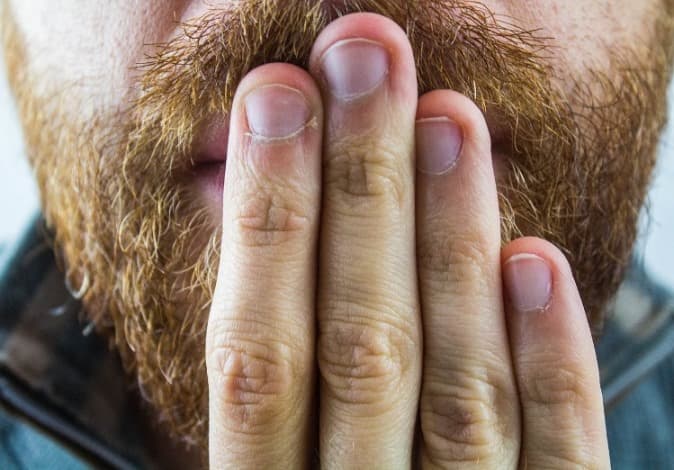Why Do I Burp When I Hiccup?
Have you ever experienced the peculiar phenomenon of burping when you hiccup? It’s not uncommon to wonder why these two bodily functions seem to occur simultaneously. In this article, we will delve into the reasons behind this curious occurrence. So, sit back, relax, and prepare to unravel the mystery of why burping and hiccuping often go hand in hand.
Table of Contents
The Science Behind Burping and Hiccuping
Before we explore the relationship between burping and hiccuping, let’s first understand what each of these actions entails.
What is a Burp?
A burp, also known as belching, is the release of gas from the stomach through the mouth. It usually comes with a distinct sound and, at times, an odor. Burping is a natural way for the body to expel excess gas that has accumulated in the digestive system.
The sound of a burp is produced when the released gas passes through the relaxed muscles of the esophagus and throat. The vocal cords may also vibrate slightly, resulting in the characteristic burping sound. The odor associated with a burp is caused by the breakdown of food particles in the stomach, which releases gases with distinctive smells.
While occasional burping is considered normal, excessive burping or burping accompanied by other symptoms such as abdominal pain, bloating, or heartburn may indicate an underlying digestive issue. If you experience persistent or concerning burping, it is recommended to consult a healthcare professional for further evaluation and appropriate treatment.
What is a Hiccup?
Hiccups, on the other hand, are involuntary contractions of the diaphragm muscle, followed by the sudden closure of the vocal cords. This closure results in the characteristic “hic” sound. Hiccups can be sporadic and short-lived or persist for an extended period.
In most cases, hiccups are temporary and harmless, resolving on their own within a short period of time. However, persistent or prolonged hiccups that last for hours or days may require medical attention. Persistent hiccups can be a symptom of an underlying health condition and may need to be evaluated and treated by a healthcare professional.
The Link Between Burping and Hiccuping
Now that we have a basic understanding of burping and hiccuping, let’s explore why they often occur together.
Swallowing Air
One of the primary reasons why burping and hiccuping may coincide is the intake of excess air. When you swallow air, either by eating or drinking too quickly, or by chewing gum or smoking, it can lead to a buildup of gas in the stomach. This excess gas can trigger both burping and hiccuping.
Irritation of the Diaphragm
The diaphragm, a muscle located beneath the lungs, plays a crucial role in both burping and hiccuping. When the diaphragm becomes irritated or experiences spasms, it can lead to the simultaneous occurrence of burps and hiccups.
Certain factors, such as consuming carbonated beverages or eating spicy foods, can irritate the diaphragm and trigger these muscle contractions.
Gastroesophageal Reflux (GERD)
Gastroesophageal Reflux Disease, or GERD, is a condition characterized by the backward flow of stomach acid into the esophagus. This acid reflux can cause discomfort and lead to both burping and hiccuping.
When the lower esophageal sphincter (LES), a muscular valve that separates the esophagus from the stomach, weakens or malfunctions, it can contribute to the development of GERD and its associated symptoms.
Nervous System Interference
The nervous system plays a crucial role in regulating bodily functions. Disturbances in the normal functioning of the nervous system, such as stress, excitement, or anxiety, can disrupt the coordination between the diaphragm and other muscles involved in breathing and digestion. This interference can manifest as simultaneous burping and hiccuping.
How can I prevent burping and hiccuping?
While occasional burping and hiccuping are natural bodily functions, there are steps you can take to minimize their occurrence and find relief. By adopting the following preventive measures, you can reduce the frequency and intensity of burping and hiccuping episodes:
Eat and drink slowly
Avoid rushing through meals and take the time to chew your food thoroughly. Eating too quickly can lead to swallowing excess air, which can contribute to burping and hiccuping. Savor each bite and make sure to thoroughly break down the food before swallowing.
Avoid carbonated drinks
Carbonated beverages, such as soda and sparkling water, contain dissolved gases that can increase the amount of gas in your stomach. Opt for non-carbonated alternatives when possible, or limit your consumption of carbonated drinks to reduce the chances of burping and hiccuping.
Manage stress
Stress and anxiety can disrupt the normal functioning of your body, including the coordination of muscles involved in breathing and digestion.
Practice stress management techniques, such as deep breathing exercises, meditation, or engaging in activities you enjoy, to help reduce stress levels and minimize the occurrence of burping and hiccuping.
Identify trigger foods
Certain foods can irritate the diaphragm and contribute to burping and hiccuping. Spicy or greasy dishes, for example, are known to cause these symptoms in some individuals.
Pay attention to your diet and identify any patterns between specific foods and the onset of burping and hiccuping. If you notice a correlation, consider reducing or avoiding those trigger foods.
Avoid swallowing excessive air
Be mindful of habits that cause you to swallow air, such as chewing gum, drinking through a straw, or smoking. These actions can introduce additional air into your digestive system, leading to increased burping and hiccuping.
Opt for alternative behaviors, like drinking from a cup instead of using a straw or quitting smoking, to minimize the intake of excess air.
Maintain a healthy weight
Excess body weight, particularly around the abdominal area, can put pressure on the stomach and contribute to the occurrence of burping and hiccuping. Maintain a healthy weight through a balanced diet and regular exercise to alleviate this pressure and reduce the frequency of these symptoms.
By incorporating these preventive measures into your daily routine, you can effectively manage and reduce the frequency of burping and hiccuping. However, if you experience persistent or severe episodes of these symptoms, it’s advisable to consult a healthcare professional for a proper evaluation and personalized recommendations.
Remember, each person’s body is unique, and what works for one individual may not work for another. It may require some trial and error to identify the most effective strategies for managing burping and hiccuping based on your specific circumstances.
FAQs About Burping and Hiccuping
Are burping and hiccuping signs of a serious medical condition?
In most cases, burping and hiccuping are harmless and temporary. However, if you experience persistent or severe episodes of burping and hiccuping, it’s advisable to consult a healthcare professional, as it could be a symptom of an underlying medical condition.
Is burping and hiccuping more common in infants?
Yes, infants are more prone to burping and hiccuping due to their developing digestive systems. Their immature diaphragm and esophageal muscles, coupled with the tendency to swallow air while feeding, contribute to frequent burping and hiccuping. Burping your baby during and after feedings can help alleviate discomfort.
Are there any home remedies to relieve burping and hiccuping?
Several home remedies may help alleviate the symptoms of burping and hiccuping:
- Drinking a glass of water: Sipping on a glass of water can help regulate the digestive system and reduce the frequency of hiccups.
- Holding your breath: Taking a deep breath and holding it for a few seconds can disrupt the hiccup cycle and provide relief.
- Drinking herbal teas: Chamomile, peppermint, or ginger teas have soothing properties that can aid digestion and reduce burping and hiccuping.

